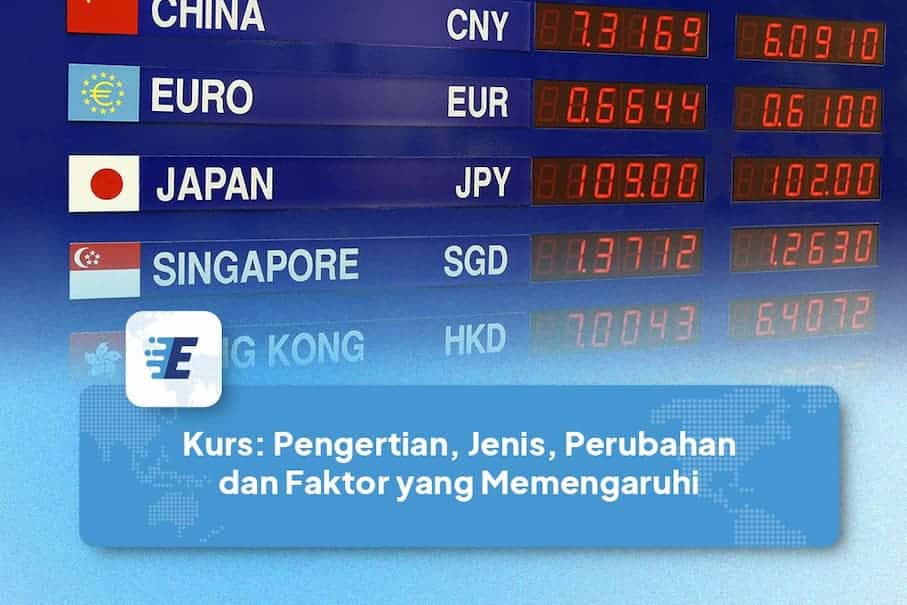Last updated on January 6th, 2025 at 11:28 am
You are probably already familiar with exchange rates! In this blog, we will discuss what exchange rates are, delve into definitions from experts, and explain their crucial role in the global economy. So, let's explore the concept of exchange rates together and understand why they are important for international trade, investment, and economic stability.
What is an Exchange Rate?
List of contents
An exchange rate is a term commonly used in the fields of economics and finance. It refers to the price or exchange value of one currency against another currency. The exchange rate reflects how many units of a country's currency can be exchanged for another country's currency.
Exchange Rates According to Experts
According to Fabozzi and Franco, an exchange rate is the amount of one currency that can be exchanged per unit of another currency. In other words, the exchange rate reflects how much the currency of one country is worth in terms of the currency of another country.
Meanwhile, according to Nopirin, the exchange rate is an exchange between two different currencies, which provides a comparison of the value or price between them. In this sense, the exchange rate measures the relative value of two currencies.
Exchange Rates in Economics
In the context of economics, the exchange rate plays a very important role. The value of a currency exchange rate greatly affects international trade, foreign investment, and the economy of a country. Exchange rates are influenced by various factors, such as interest rates, inflation, political stability, and market sentiment.
Currency exchange rates can also fluctuate over time. Market participants, including banks, investors, and traders, participate in currency trading to profit from changes in exchange rates. A country's government and central bank can also intervene in the foreign exchange market to influence or maintain the stability of its currency exchange rate.
Types of Exchange Rates
There are three main types of exchange rates commonly used in the context of currency exchange:
Selling Rate (Bid Rate)
The selling rate is the rate used when a person or entity exchanges their local currency for foreign currency. This is the rate used by money changers, banks, and foreign exchange traders when they sell foreign currency to consumers or market participants. The selling rate is also known as the "selling price" of foreign currency.
Example: If the selling rate of the euro is 1 EUR = 14,500 IDR, then Rp50 million will result in €3,448.3.
buying rate (Ask Rate)
The ask rate is the rate used when an individual or entity exchanges foreign currency back to local currency. This is the rate used when someone wants to exchange the foreign currency they have for local currency. The buying rate is also known as the "buy price" of foreign currency.
Example: If the ask rate for the euro is 1 EUR = 14,030 IDR, then €300 will result in Rp4,209,000.
Middle Rate (Mid Rate)
The middle rate is the rate that lies between the selling rate and the buying rate. The middle rate is often used by central banks and financial institutions as a reference. The middle rate is used as a benchmark in various financial and economic activities.
Types of Exchange Rates in Indonesia
In Indonesia, there are two types of exchange rates commonly used. The first is the bid rate, which is used when someone exchanges rupiah for foreign currency. This selling rate is generally used by banks, money changers, and foreign exchange dealers to sell foreign currency to consumers or market participants.
The second is the ask rate, which is applied when someone exchanges foreign currency back to rupiah. This buying rate is also referred to as the "buy price" of foreign currency. Generally, the buying rate is lower than the selling rate, and it is used to generate profit for those conducting the currency exchange.
The exchange rates in Indonesia are managed by Bank Indonesia to maintain the stability of the rupiah in fluctuating market conditions.
Exchange Rate Changes
Exchange rate changes refer to the fluctuation of a country's currency value against another country's currency. There are two main changes: appreciation (increase in currency value) and depreciation (decrease in currency value). Appreciation makes exports more expensive and imports cheaper, while depreciation makes exports cheaper and imports more expensive.
Exchange rate changes affect international trade, foreign investment, and the country's economy. Governments and central banks are often involved in managing exchange rate changes to achieve economic goals.
Types of Exchange Rate Transactions
There are three main types of exchange rate transactions in the foreign exchange market (forex market):
Spot Transactions (Spot Transaction)
Spot transactions involve the purchase or sale of currency with immediate payment at the time of the transaction. These transactions are used for urgent needs, such as purchasing foreign currency for overseas travel.
Forward Transactions (Forward Transaction)
Forward transactions involve the purchase or sale of currency with an agreement to deliver it in the future at a predetermined rate. Forward transactions are often used to protect against currency exchange rate fluctuations.
Read Also: Foreign Exchange Rate: Definition, Purpose, System, and Calculation
Swap Transactions (Swap Transaction)
Swap transactions involve the exchange of two different currencies with a commitment to reverse the transaction in the future. These are often used for risk management purposes or to achieve goals in an investment portfolio.
Factors Affecting Exchange Rates
The exchange rate of a country's currency can be influenced by various economic and policy factors. Here are some of the main factors affecting currency exchange rates:
Balance of Payments
A country's balance of payments, which includes exports, imports, foreign investments, and international transfers, is an important factor in determining the exchange rate of its currency.
Read Also: Telegraphic Transfer
If a country has a balance of payments surplus, it means more foreign currency is entering the country, which can strengthen the local currency. Conversely, a balance of payments deficit can weaken the currency.
Inflation
A country's inflation rate can affect the value of its currency. Countries with lower inflation rates tend to have stronger currencies because their purchasing power is higher. Conversely, high inflation rates can weaken the currency.
Interest Rates
Domestic interest rates influence foreign investors' interest in investing in that country. Higher interest rates can attract foreign capital and strengthen the local currency. Lower interest rates can have the opposite effect.
Trade Balance
The difference between a country's exports and imports affects the demand for its currency. Trade surpluses tend to strengthen the currency, while trade deficits can weaken it.
Read Also: Foreign Exchange Market: Definition, Functions, Participants, and Structure
Government Policies
Government policies, including foreign exchange market interventions, international trade controls, and other measures, can affect currency exchange rates.
Exchange rates are a vital element in international business and global finance. Changes in exchange rates can significantly impact import and export costs, investment returns, and strategic business decisions.
With a good understanding of exchange rates and the factors affecting their changes, businesses can manage risks, optimize profits, and conduct international transactions more efficiently.
In this context, Easylink is the solution that helps businesses with fast, secure, and competitively priced international money transfers. With efficient international money transfer services, Easylink helps businesses meet international payment obligations and conduct cross-border operations more efficiently.


